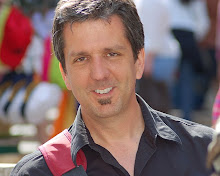I should preface this by saying that I had no intention of going into church music when I graduated. My first goal was a studio guitarist, but when I graduated, 'college professor' seemed more likely. I flirted with film scoring, playing in a touring folk band and writing educational materials, before church music kind of fell in my lap. At the age of 43, I took my first and only class in Reform Theology, along with 24 Sunday school teachers from the deep South. It was all I needed to add to my knowledge base for the job.
But everything I truly needed to know about church music I never learned in college. Or in a classroom with a bunch of Sunday school teachers. I learned it in the cross-pollination of subjects I experienced while writing film scores, writing educational materials, or touring in a folk band. What I learned is that the demands of a church musician require the ability to see the connection between an infinitely diverse panoply of topics.
For starters, the traditional "church choir director" role is gone, or is going away. In it's place, anyone who wants to have a serious church musician post is going to have to be conversant in choral, orchestral, handbell, rock, jazz and folk music. An ability to play piano is still a must, as is the ability to play guitar, sub for your bassist when he's sick, communicate violin bowings and flute embouchures, and sit down at the drum set when your praise band needs it. You'll have to be able to arrange hymns for children's choirs, write out orchestral scores, explain what a m7(b5b9) chord means to the guitar player, and help your organist work out a continuo part.
In addition, it will be helpful if you know the difference between a dynamic and a condenser microphone, know how to set-up EQ at the sound board and record a saxophone, and what to watch for in a contract for a touring musician. You may be required to set up an art show, a film series, a book group and organize your choir's tour to Spain.
Oh, and you need to know how to direct a choir. ...and do it well.
The glaring deficiencies of my college education were apparent to me early on, so none of this came as a surprise to me when I started my job at Grace First. I had long bemoaned the fact that anyone could be allowed to graduate with a bachelors and a masters degree and never have anybody explain the terms "performing rights organization," "royalty," or what a musician's union actually did. (I'm still not sure I know that last one.)
But what saved me was the fact that I dabbled in all of those things I mentioned earlier. Booking a choir tour was easy because I've booked my own. Recording CDs with my band helped me understand how to record the church band, and how to maneuver our digital sound board. I had been playing handbells for years before I first started directing a group. Teaching in a classroom gave me the tools I needed to be able to explain Handel's Messiah to my choir.
The key is, I did as much as I could and learned everything I possibly could. Not having a focus meant that there were times I never reached the top of a given field of music; for instance, I never became a full-time studio musician.
I think a lot of people today wait around trying to figure out their career path, waiting to "find their bliss." I've learned that you don't find your bliss by waiting for it to come to you. You find it by doing as many things as you possibly can.
And you become a good church musician by learning and doing as many things as you possibly can.
